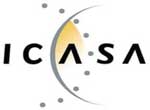
Top stories

Marketing & MediaBehind the campaign: Reframing fairness in ride-hailing: The inDrive success story
inDrive 2 hours





More news
















The termination rate‚ which is currently at 40c‚ is a fee that mobile operators pay each other to carry each others' calls. The reduction in the termination rate is expected to result in effective competition in the mobile sector and a further decline in retail prices.
In February Icasa said that despite the 2010 regulatory intervention that resulted in the decline in termination rate from R1.25 in 2009 to 40c this year‚ it was concerned that there had been an "insufficient increase" in competition over the past few years. Icasa said high termination rates were a barrier to effective competition and to reduced prices for calls to different networks.
Icasa has also introduced an asymmetric termination rate‚ in a bid to help operators with less than 20% of the market to compete with MTN and Vodacom. Major companies will be required to pay a higher than normal rate to their smaller counterparts. In return‚ small operators will pay their competitors the normal rate.
Cell C and Telkom Mobile have been lobbying for an asymmetric mobile termination rate saying that it will benefit consumers.
Alan Knott-Craig‚ Cell C's chief executive‚ has previously said that asymmetry is critical for the sustainability of competition.
Responding to the announcement he said:
"It is really encouraging to see ICASA work quickly and efficiently, favouring neither friend nor foe. Whilst in actual terms (cents) the asymmetry is lower than what was hoped for, ICASA has been smart in providing asymmetry over a longer period with a relatively gentle glide path. On the other hand it has blasted the way open by drastically reducing the single largest cost factor in prices, namely the MTR which both Vodacom and MTN enjoy, noting that today these two operators control more than 90% of the mobile market revenue. They have got that spot on. Of all the players Telkom (fixed line) wins hands down. And I do not begrudge them that. They have played a major role in establishing the current healthy mobile industry. Whilst my first instinct is to challenge ICASA, they have had to tread a fine line between under-reacting and over-reacting, and they have cleverly done what they needed to do to make it possible for the telecommunications market in South Africa to gain a semblance of normality. I would have wished for a better outcome for Cell C, but individual interests aside, the market will be a more competitive and balanced one with ICASA's proposed draft regulations on termination rates as they have currently proposed them.
"It is important to note that this is but the first regulatory step in normalising the South Africa telecommunications space. There is much more to come, and the competition is going to be fierce. Cell C needs more market share, and we will only gain that through aggressive pricing and good network quality. Price is the easy bit, and we are still on track for adding masses of capacity and drastically improving network quality by November this year to cater for the dramatic increase in traffic. We are fighting for an even playing field to compete on. And we are winning, because we absolutely believe in our cause."
Icasa said the asymmetry rate would, among other things, promote investment‚ encourage competition and foster the growth of small‚ micro and medium enterprises.
Vodacom and MTN have been against the introduction of an asymmetric interconnection rate saying such a move could undermine network quality and be counter-productive.
Icasa said from March next year‚ the termination rate will decline to 20c‚ in 2015 it will reduce to 15c and by 2016 to 10c. The asymmetric rate‚ which is currently at 44c‚ will decline to 39c next year‚ 33c by 2015 and 26c and 20c by 2016 and 2017‚ respectively. In 2018 the rate will be 14c then in 2019 all operators will pay each other 10c.

For more than two decades, I-Net Bridge has been one of South Africa’s preferred electronic providers of innovative solutions, data of the highest calibre, reliable platforms and excellent supporting systems. Our products include workstations, web applications and data feeds packaged with in-depth news and powerful analytical tools empowering clients to make meaningful decisions.
We pride ourselves on our wide variety of in-house skills, encompassing multiple platforms and applications. These skills enable us to not only function as a first class facility, but also design, implement and support all our client needs at a level that confirms I-Net Bridge a leader in its field.
Go to: http://www.inet.co.za